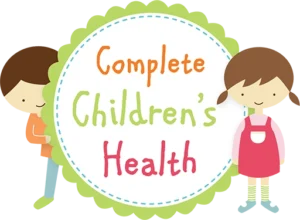For autistic children, the school environment can sometimes become a challenging terrain marked by the unfortunate presence of bullying. Let’s explore the realities of bullying for autistic children and provide insights into how parents can play a crucial role in supporting their children through these difficulties. Fostering understanding, creating a supportive network, and advocating for inclusivity are key elements in building a school environment where every child can thrive.

Understanding Bullying for Autistic Children:
Autistic children may be more vulnerable to bullying due to differences in communication, social interaction, and sensory processing. The uniqueness of their perspectives and behaviours may make them targets for teasing, exclusion, or overt forms of bullying. Bullying can manifest in various ways, including verbal, physical, or social harassment, exacerbating the challenges already faced by autistic children in navigating social interactions.
How Parents Can Help:
Build Open Communication Channels:
Establishing open communication channels with your child is fundamental. Create a safe space where your child feels comfortable sharing their experiences at school. Regularly check in on their feelings, experiences, and interactions, allowing them to express any concerns or challenges they may face.
Educate and Empower:
Educate your child about bullying and help them understand acceptable and unacceptable behaviour. Provide tools and strategies to navigate social interactions and empower them with the confidence to assert themselves appropriately when faced with bullying.
Foster Social Skills:
Work collaboratively with teachers and support staff to implement social skills training. This can include role-playing scenarios, teaching social cues, and providing guidance on appropriate responses in different situations. Building social skills can empower autistic children to navigate social complexities more effectively.
Advocate for Inclusivity:
Collaborate with school administrators, teachers, and support staff to advocate for an inclusive and supportive school environment. Promote awareness about autism within the school community, fostering understanding and empathy among peers. Inclusive policies and initiatives can contribute to a more positive and accepting atmosphere.
Establish a Support Network:
Connect with other parents of autistic children and establish a support network. Sharing experiences, advice, and resources can provide valuable insights and a sense of community. Building relationships with other families facing similar challenges can be a source of strength and understanding.

Collaborate with School Staff:
Foster a collaborative relationship with your child’s teachers and support staff. Share information about your child’s strengths, challenges, and individual needs. Work together to develop personalised strategies that can be implemented in the classroom and during social activities.
Monitor and Address Bullying Incidents:
Stay vigilant and monitor your child’s experiences at school. If you notice signs of bullying, address the issue promptly with school authorities. Advocate for a comprehensive anti-bullying policy that includes specific measures to address the unique challenges faced by autistic children.
Encourage Positive Peer Relationships:
Facilitate positive peer relationships by encouraging social activities and providing opportunities for your child to engage with classmates in a supportive environment. Building connections with understanding peers can enhance your child’s sense of belonging and reduce the risk of bullying.
Addressing bullying for autistic children requires a multifaceted approach that combines education, communication, and advocacy. Parents play a pivotal role in creating a supportive network for their children and working collaboratively with schools to foster an inclusive environment. By building awareness, advocating for inclusivity, and empowering autistic children with the necessary skills, parents contribute to a school environment where every child can thrive, free from the detrimental effects of bullying.
